Eastern and Southern Africa (ESA) is home to a population of approximately 470 million people, with agriculture serving as a vital sector for livelihoods. However, the region faces significant challenges in dryland agriculture, including low crop productivity, susceptibility to pests and diseases, and the impact of abiotic stresses such as droughts, floods, and poor soils.
ICRISAT, in collaboration with governments and local partners, is committed to addressing these challenges and unlocking the potential of dryland communities in the ESA region. Our approach involves implementing integrated farm and landscape management models that tackle soil degradation through soil health and water management practices, land restoration initiatives, and crop-livestock integrated systems. By adopting these strategies, we aim to improve agricultural productivity and create sustainable livelihood opportunities for communities in dryland areas.
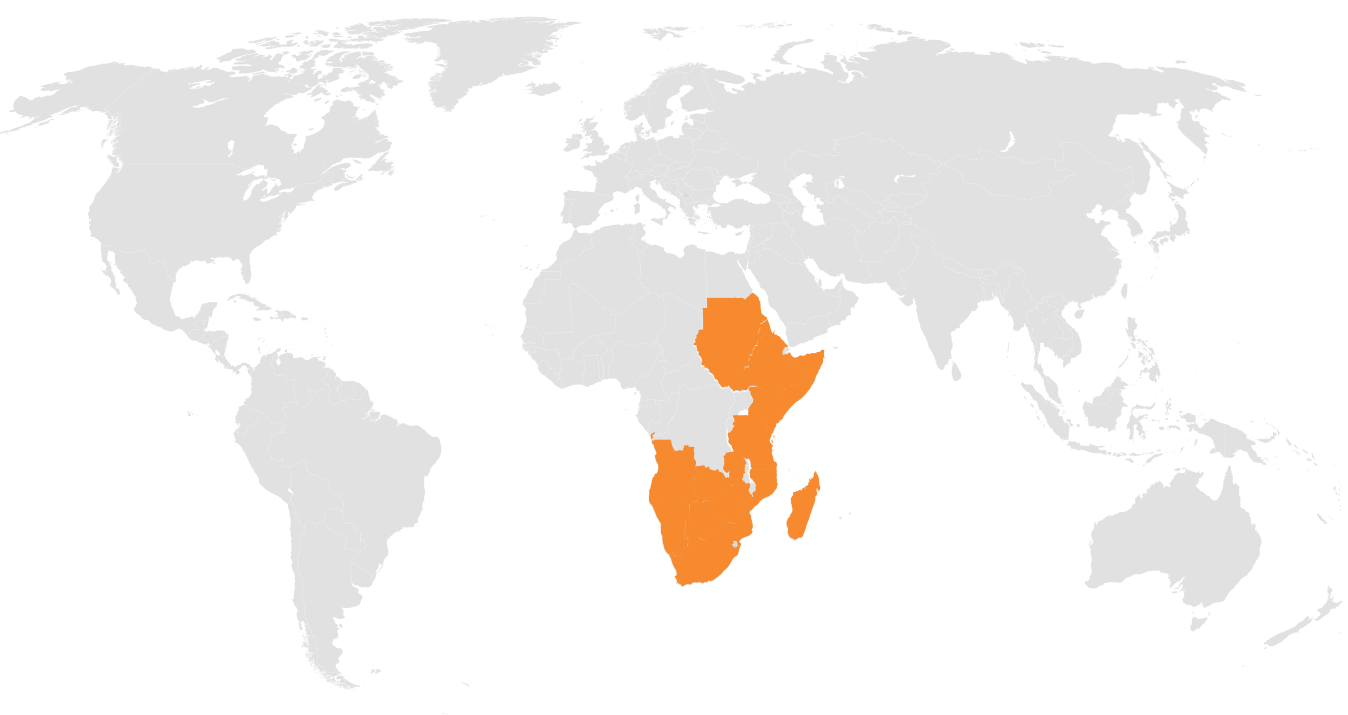
Through systems analysis, we conduct foresight characterization of agro-ecological zones and develop crop suitability maps to guide decision-making. We also work towards managing risks and analyzing the value chains, promoting the adoption of improved crop cultivars and other technologies that are tailored to the specific needs of the region.
Our decision support tools play a crucial role in enhancing fertilizer use efficiency across different farming systems, agro-ecologies, and landscapes. Additionally, we prioritize food safety through the development and application of mycotoxin diagnostic and management tools, among others, ensuring the production of safe and high-quality food.
ICRISAT's focus in ESA extends beyond individual crops or practices. We aim to transform entire agri-food value chains, fostering job creation, attracting investments, and empowering smallholders to add value to their agricultural products. This comprehensive approach not only enhances economic opportunities but also contributes to improved dietary diversity and nutritional outcomes.
With a strong presence in the region, ICRISAT operates through offices and research facilities in five countries: Kenya (regional hub), Malawi, Ethiopia, Zimbabwe, Mozambique, and Tanzania. These strategic locations enable us to collaborate closely with local communities, governments, and institutions to address the unique challenges faced in ESA's dryland agriculture.
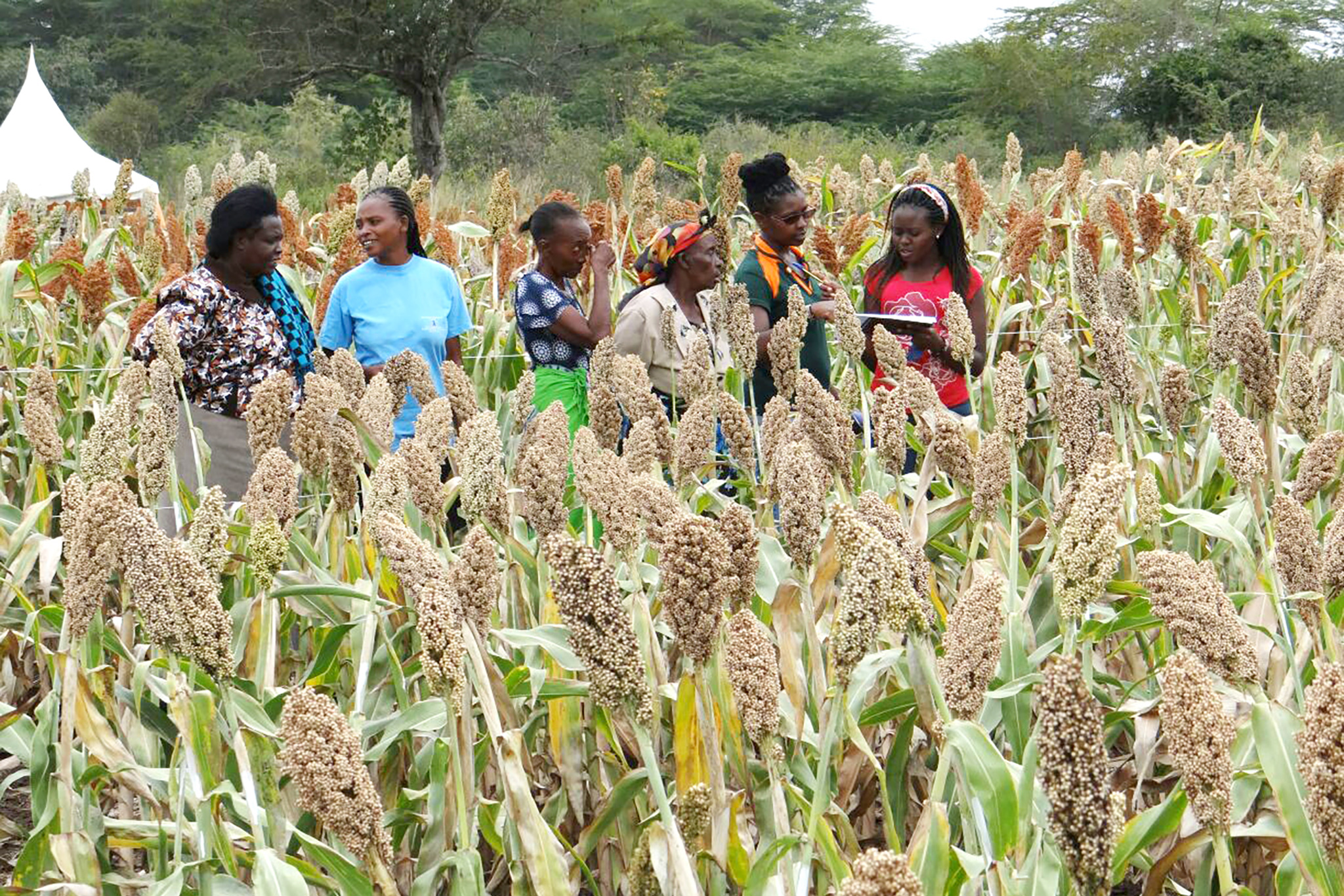
For over 40 years, the International Crops Research Institute for the Semi-Arid Tropics (ICRISAT) has spearheaded agricultural progress in Kenya. Our Semi-Arid Food Grain Research and Development Program (SAFGRAD), launched in 1981 with support from the United States Agency for International Development (USAID), marked the beginning of our commitment. Serving as the Eastern and Southern Africa (ESA) hub, our Kenyan office collaborates extensively with regional counterparts. Our cutting-edge research station equips us to pioneer solutions for dryland challenges, partnering with the Kenyan government to promote climate-smart technologies and resilient crops. Notably, our Hybrid Parents Research Consortium for Sorghum, in partnership with the Seed Traders Association of Kenya (STAK), drives seed industry innovation, benefiting smallholder farmers and ensuring sustainable growth. With a resolute focus on empowering farmers, enhancing food security, and propelling economic development across Kenya's drylands, ICRISAT remains a driving force in transforming the nation's agricultural landscape.
Since 1981, ICRISAT-Ethiopia has partnered with the government, focusing on key agricultural priorities. Our work aligns with national policy, concentrating on natural resource management, seed systems, capacity building, and soil health.
We optimize resources through basin development, tailor seed systems to user needs, and reshape seed regulations. Our research station drives insights, addressing soil fertility, acid management, iron deficiency, and precise fertilizer recommendations.
Notably, we are tackling Ethiopia's soil acidity with Fertilizer Decision Support Tools. Through collaboration, we fuel innovation, resilience, and community empowerment, striving for a food-secure, prosperous Ethiopia.
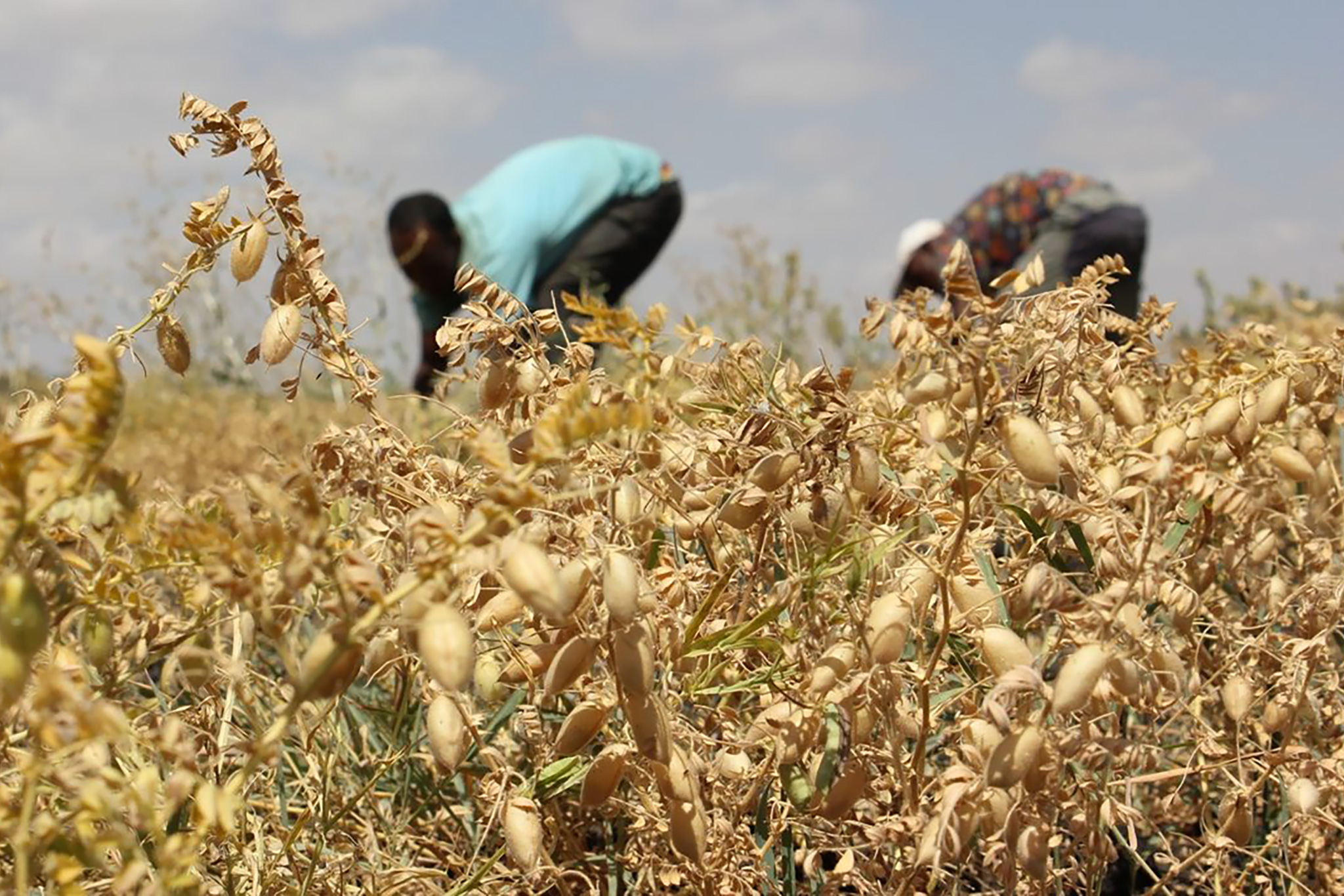
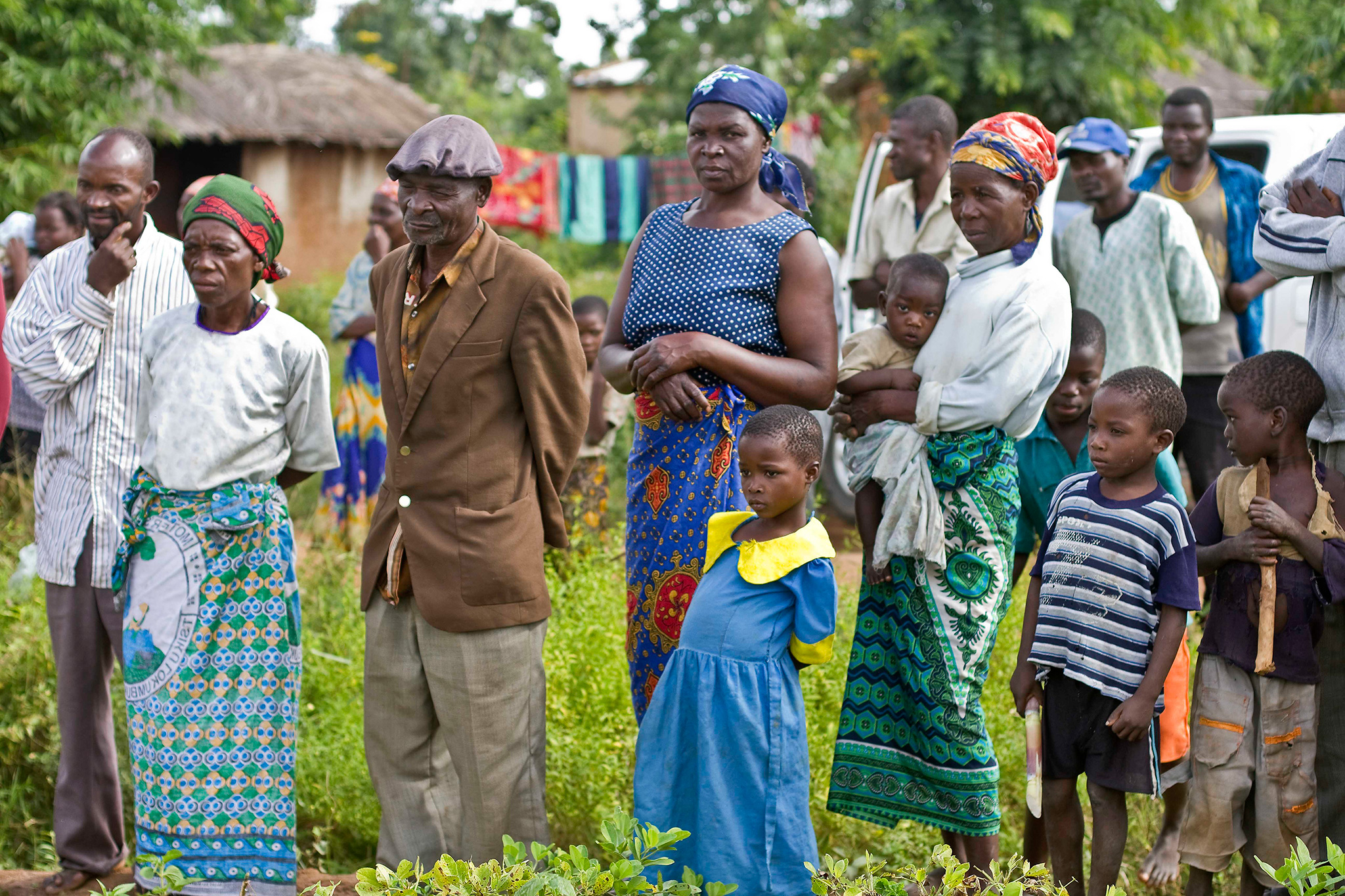
Established in 1985, ICRISAT-Malawi is a driving force in advancing agricultural productivity and commercialization in line with Malawi Vision 2063. Aligned with national strategies, including the National Multi-Sector Nutrition Strategic Plan and the National Agriculture Policy, we are dedicated to sustainable agricultural production and food security.
Our well-equipped country office empowers cutting-edge research and development. With advanced labs, seed testing facilities, and greenhouses, we create improved crop varieties and promote sustainable practices. Notably, our work has elevated legume adoption, reduced costs, and released innovative crop varieties.
We champion nutrition and food safety, raising awareness of hazards and enhancing value chains. Our inclusive approaches strengthen markets and empower communities for improved nutrition. Looking forward, we're investing in capacity development and focusing on modernizing breeding, crop protection, and soil health.
Since 1982, ICRISAT-Mozambique has partnered with the Institute of Agricultural Research (IIAM) and the National Agricultural Research System (NARS), pioneering collaborative efforts that revitalized post-war seed systems, including the vital USEBA basic seed unit. Supported by the government, our decade-long research has elevated Mozambique to a significant pigeonpea exporter and producer, benefitting over a million rural households. Our research sites in IIAM Maputo, IIAM Nampula, and IIAM Angonia, Tete, drive integrated solutions aligned with productivity, climate resilience, nutrition, income growth, and capacity development.
Notably, the Niassa Agricultural Development Project has amplified our transformative initiatives, enhancing crop production, livestock integration, market access, employment, incomes, and nutrition.
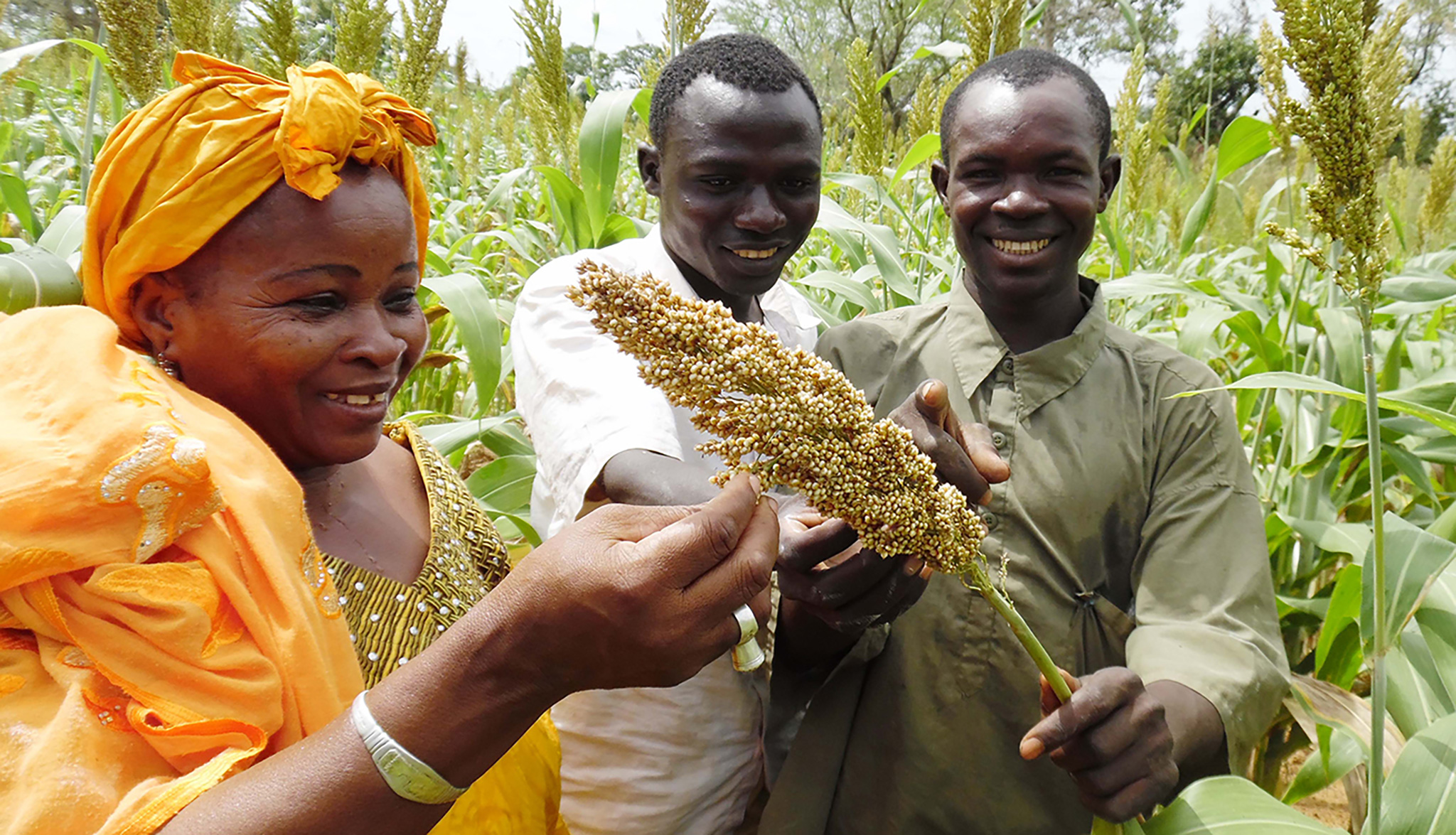
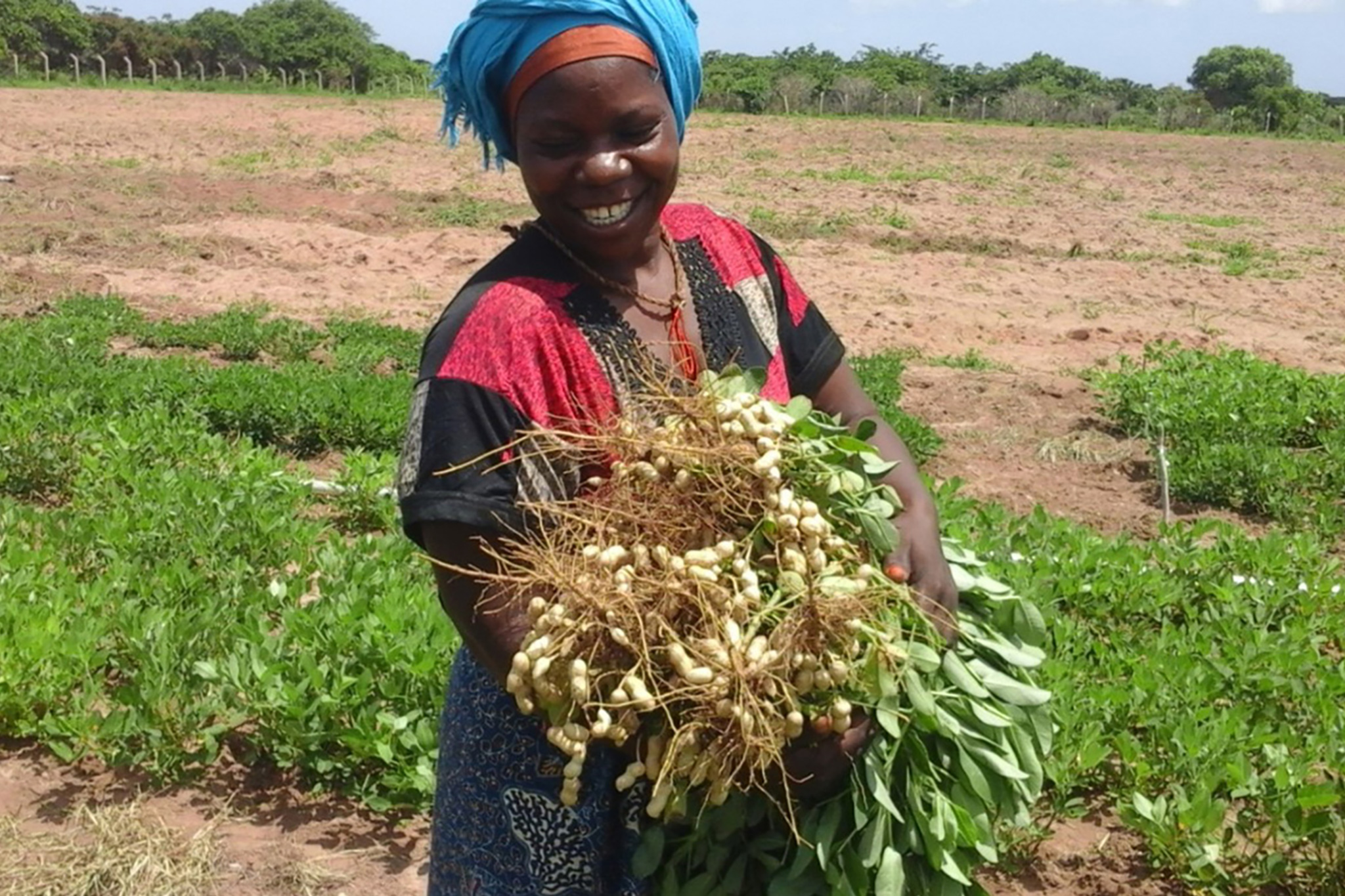
Our collaboration with Tanzania began in 1977, pioneering advancements in dryland cereals like sorghum, pearl millet, and finger millet, along with groundnut, chickpea, and pigeonpea. Through the Tanzanian Agricultural Research Institute (TARI), we align with national strategies, contributing to food security and poverty reduction while realizing the Tanzania Development Vision (TDV) 2025.
Guided by the Agricultural Sector Development Strategy (ASDS-II), our research focuses on integrated farm and landscape management. Enhancing soil health, optimizing water practices, and promoting improved seeds and fertilizers drive sustainable productivity. Notable achievements include hybrid sorghum varieties, groundnut resilience, and the Seed Revolving Fund initiative.
We actively strengthen aflatoxin testing capacity, empowering local institutions like ARI-Hombolo and Sokoine University of Agriculture (SUA). As we advance, ICRISAT's commitment to transformative agriculture endures, empowering Tanzania's farming communities and contributing to a resilient, food-secure future.
The SADC / ICRISAT Sorghum and Millet Improvement Program (SMIP), endorsed by SADC Heads of Government, led to ICRISAT Zimbabwe's establishment in 1983. Aligned with national plans, our focus is elevating agricultural productivity, eradicating hunger, improving nutrition, and fostering sustainability in Zimbabwe's smallholder-driven sector.
Our efforts drive food and nutrition security, enhancing sorghum, millet, and groundnut for micronutrient-rich crops. We test and release varieties, promote value-added products, and raise nutritional awareness, impacting farmers and partners.
Smart water management and Agriculture Innovation Platforms (AIPs) yielded impressive results, elevating water productivity and income. Conservation agriculture raised cereal yields by 50-200% in over 150,000 households.
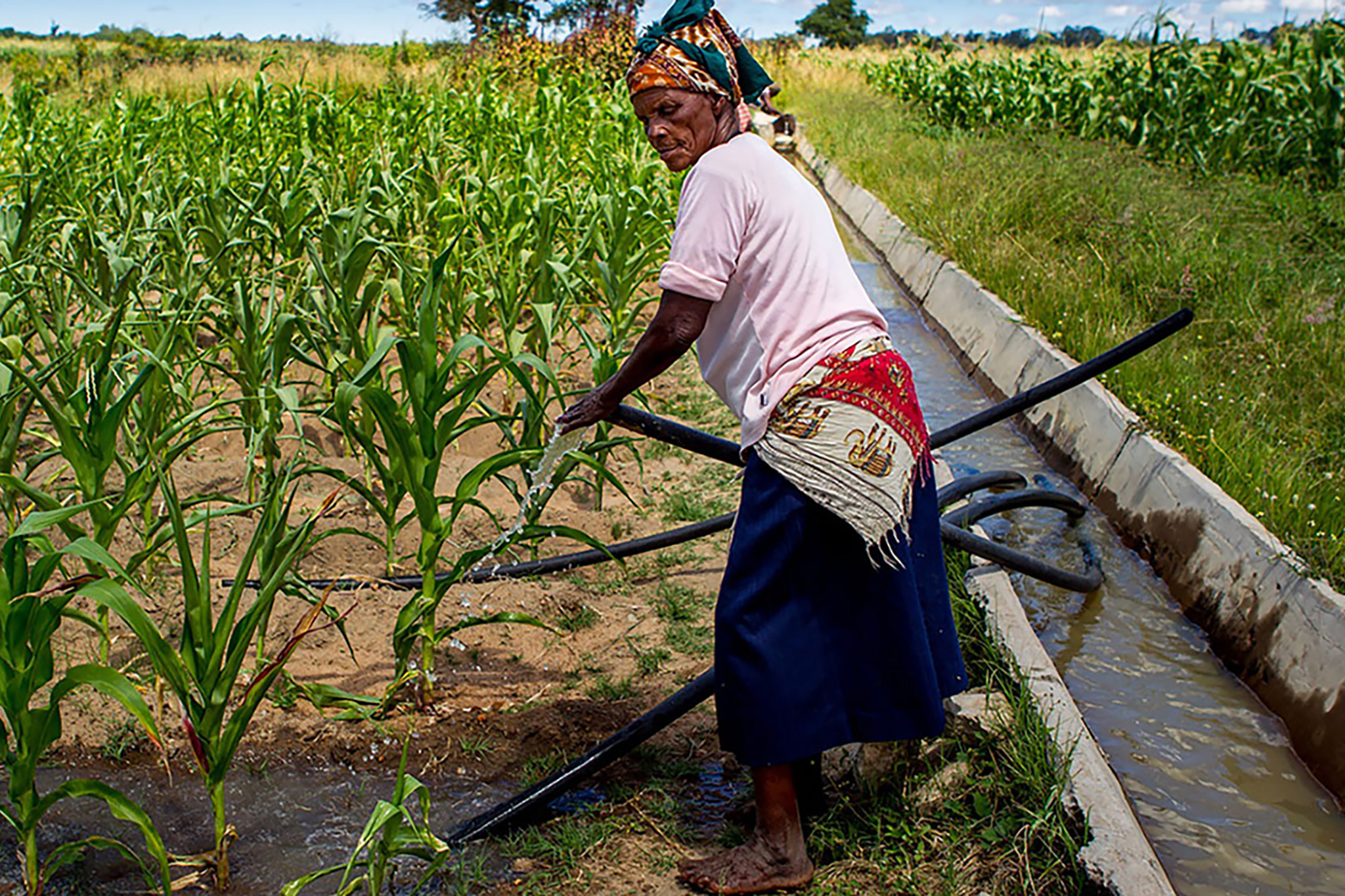
Linking farmers to markets, particularly in the goat value chain, and robust collaboration with the Government and partners showcase our commitment. From hybrid release to climate-smart tech, our experience drives sustainable development and resilient agriculture in Zimbabwe. Through research, innovation, partnerships, and capacity building, ICRISAT empowers communities, ensuring a prosperous agricultural future.
To partner with the world’s premier drylands institute, please get in touch